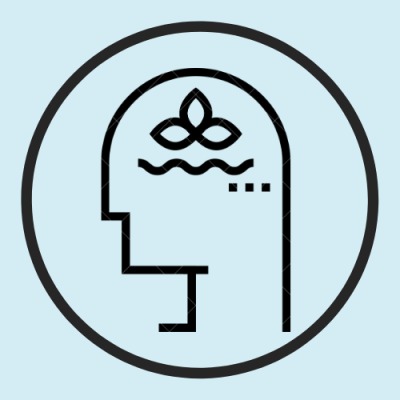
Once, many years ago, at a dinner with some distant friends I didn’t know very well, the question of what ‘good poetry’ was came up. ‘Poetry doesn’t really speak to me,’ I confessed ashamedly at the table. Although literature was then, as now, one of my greatest passions, I didn’t feel as connected to poetry as I did to fiction and drama, and I was embarrassed to admit this at the table. One of my dinner neighbours looked at me to gauge my reaction. ‘That’s a very poetic way of putting it,’ she replied dryly, with a touch of humour in her eyes.
In the years that followed, I began working on my PhD on twentieth-century English literature, and during this time the initial love of literature I had as a child began to fade. During my PhD, literature became something that couldn’t be enjoyed naturally, and the idea of reading for pleasure became an alien concept. Literature outside my narrowly defined area of interest became increasingly distant and unremarkable. The pages of novels were no longer turned with the same sense of wonder and anticipation; instead, each word seemed to carry the weight of analysis, critical scrutiny and the relentless pursuit of scholarly precision. The works that had once held my imagination were now scrutinised through the lens of theory and methodology, often overshadowing the fascination and magic that had originally drawn me to it.
The question of my appreciation of poetry (or lack thereof) came up again a few years later during an interview for the academic position I hold today. The stakes were high. As part of the process, I had to submit a sample syllabus for a module in modernism, my specialism, and present these plans to the committee. The module I presented was, as one might expect: Virginia Woolf, James Joyce, D.H. Lawrence, etc. The presentation began with a discussion of the themes, historical context, and analytical approaches that formed the core of my academic expertise. After my presentation, I was asked by one of the panellists about the lack of poetry in the module. Where was Ezra Pound? Where was T.S. Eliot? Where was H.D.?
Being the brash young academic that I was at the time, I said, ‘Well, I specialise in the novel form, so someone else who specialises in poetry might teach the module differently to me.’ The panellist knew as well as I did that the story of modernist literature could be told in different ways. The story that persisted for much of the twentieth century was that the radical innovations of literary modernism represented a form of masculine heroism characterised by the bold poetic experiments of T.S. Eliot, Ezra Pound, and W.B. Yeats. The panellist’s question therefore touched on a deeper truth — the diversity of voices in modernist literature and the complex interplay of gender dynamics that shaped their perception. But it is also true that the heroic saga of modernist innovation as it is usually told tends to overshadow the contributions of women poets like H.D., Marianne Moore, and others who have played a key role in reshaping poetic expression.

More recently, modernist studies, in which I was trained in the early years of the 21st century, centred on a multifaceted modernism characterised by fiction, with James Joyce, Virginia Woolf and D.H. Lawrence being among the main voices contributing to the period and style we now call modernism. This focus on the novel as the primary medium for the expression of modernist ideas was not without merit. The narrative innovations and exploration of subjective experience in these novels provided rich terrain for scholarly analysis and interpretation.
In the years following that fateful interview in which I was asked what place poetry had in my curriculum, something known as ‘new modernist studies’ has emerged, which addresses the question of what we mean by several different modernisms that include many different voices beyond the Western male voices of the ‘men of 1914’ history of modernism. This contemporary approach removes the limitations imposed by a Eurocentric, male-centred view and leads to a more comprehensive examination of the multiplicity of modernist expressions. The paradigm of ‘new modernist studies’ actively seeks out the voices that were previously excluded — voices beyond the Western male canon that dominated early discussions of the movement. This inclusive perspective recognises that modernity is not a monolithic entity, but a dynamic and heterogeneous phenomenon shaped by a spectrum of cultural, geographical and gendered influences.
The module I presented at the interview could have been about poetry, but also about the development of modernist fiction, about the ways in which the shifting centres of consciousness, alienation, and unease of modernism contributed to a new experimental way of capturing the unconscious in modernist prose. I wanted to explain how these thematic elements contributed to a pioneering, experimental approach to capturing the complexity of the unconscious in modernist prose. But when I was asked about my apparent lack of expertise in poetry during the interview, I recalled a similar question at a dinner a few years earlier and once again felt that there was something wrong with me because poetry wasn’t inherently appealing to me. It was an unsettling moment, a subtle reminder that my fondness for fiction might be perceived as a lack, casting a shadow over my confidence and expertise in the wider field of literary studies.

Why was I not drawn to and moved by poetry, as so many others seemed to be, and, more worryingly, why was poetry not for me, an academic of English literature, something that shaped and broadened my view of the world? Poetry has traditionally been held in high esteem in the ivory towers of literary scholarship, seen as a vessel for the most profound expression and a key to conveying the human experience. This raised the question of whether my academic journey was incomplete without a deep engagement with the poetic form.
I still read poetry, and I still look forward to the lecture I give each year to students on T.S. Eliot’s masterful 1922 poem The Waste Land. But the history of English that I know how to tell is the story of fiction. And that’s just as well, because there are other academics around me telling the parts of the story that I don’t know or speak naturally. Each academic holds onto a part of the history of English literature that they have embodied and can render spontaneously and authentically. While we must continually challenge ourselves and question the limits and judgements of our understanding of this small part of our shared cultural history, we can also surrender to the certainty that we don’t need to know everything. Like a piece of a mosaic, each scholar contributes a unique perspective that embodies and expresses the nuances of a particular literary period or genre. This collective endeavour ensures that the narrative is comprehensive, multi-faceted, and, most importantly, collectively understood.
That is true of life in general. We’re all in search of a language that we naturally speak, the language of our youthful interests and obsessions. Our early childhood obsessions give us an early indication of the things we care about most, but as we grow up, we tend to detach ourselves from these early interests and lose sight of what was once really important to us. Often it’s these childhood interests that point us in the direction of how we want to see the world and how we want the world to speak to us. These formative passions, which point like compass needles to our genuine concerns and authentic desires, are the key to understanding what is truly important to us. In these early years, we connect to the world by establishing an initial dialogue with the aspects that capture our imagination and awaken our genuine curiosity.
As we go through our formal education and then enter adulthood, we seem to drift further and further away from the unique language that communicates to us. Whether it’s poetry, sports, art, cars, horses, the creation of beautiful spaces or beautiful conversations, there is something we’re naturally drawn to. Sometimes we feel that it’s not what we should be drawn to, we feel ashamed of the language we naturally speak, and we feel that we should be drawn to a different way of expressing our innermost selves. In the fabric of our evolving lives, there is a constant beacon — a resonance that calls to us and guides us towards something we’re naturally drawn to. The language we naturally speak, the unique dialect of our passions and interests, is an integral part of who we’re. It’s a symphony of our individuality, a melody that carries the echo of our genuine self-expression.

Academic disciplines are concerned with a language that is authentic to the object of study. This applies to all interpretive humanities, from art history to game studies and English literature to theology. The primary and often only difference between these disciplines is the object of study itself, not the goals and intentions. The difference lies first and foremost in the specific object of study, be it the brushstrokes of a painting, the dynamics of a game, the nuances of narrative form or the theological foundations of belief systems. The respective ways of thinking, thought patterns, and techniques are not particularly different. Scholars in all of these disciplines conduct critical research using different lenses to peel back the layers of meaning and significance in their respective objects of study.
In all these disciplines, we have an object in front of us, an artefact that we analyse and understand. We come together in a shared interpretive community to build on the interpretations of others and construct a shared and commonly accepted understanding of meaning in the present. Whether we are writing about Eliot’s Waste Land or Dungeons and Dragons, when we write about an artefact, we share with others what it means to us at this particular moment so that other critics in our own time and in the future can understand what that work meant in our own time.
In this collaborative endeavour, we build on the interpretations of our predecessors, creating a continuous chain of insights that contributes to the construction of shared meaning. The interpretations offered by scholars are not isolated acts, but rather building blocks in an ongoing dialogue that spans time and disciplinary boundaries. By sharing individual perspectives and insights, scholars contribute to a collective understanding of the meaning of an artefact in the present. This not only captures the essence of the artefact itself, but also reflects the cultural, social and intellectual milieu of the time. In essence, academic interpretations become capsules of meaning that encapsulate the zeitgeist in which they are formulated.
In recent decades, the academic field of Western esotericism has revitalised serious academic interest in magic, mysticism, and the occult, subjects that had long been relegated to the dustbin of history by ‘serious’ scholars. As the field of Western esotericism began to develop, a new language emerged, a system of conventions for reading, discussing, and critically understanding the vast cultural heritage of esoteric thought forms. This does not presuppose that one believes in astrology or trance possession, but it does presuppose that one believes that these practises were and are a significant cultural moment worthy of attention in this regard.
I now teach Western esotericism at university level, and students are sometimes surprised to realise that they do not have to believe in the transmigration of souls or the teachings of the Theosophical Society. Some students may also be followers of these practises, but all that is required from the conventions of the subject is a belief that these forms of thought were important to many people and that by studying them we can better understand what magical ways of thinking meant to society in the past, present, and probably into future.

In many ways, this is similar to my own apprehension that I am not naturally inclined to poetry. I understand and appreciate the value and importance of poetry, but at the same time accept that the intense study of poetry is something that can be pursued by others who more instinctively speak this language. This diversity of interest and passion enriches the collective understanding of literature and allows for a multi-faceted exploration of the myriad ways in which poetry affects the individual.
Ultimately, we all strive to connect what is inside us with what is outside us. We are all born with an innate language that speaks to us. This quest for connection is based on the realisation that we are born with an innate language — an intricate system of expression that uniquely resonates with our individual being.We first understand this language through our childhood passions and obsessions, but this language is often trained out from us in early adulthood.
To return to the language we naturally speak, we need to re-engage with what inspired us as a child, perhaps things that we were later told were not to be taken seriously, were shameful, or would not get us a job in the long run. Our relationship to these themes and ideas will have changed in the intervening years or decades, but the value that has remained is that they meant something to us when we were young, and that something inside us was trying to find an outward expression, a way to find form and meaning in a way that could be shared and understood by others. We are all just one piece of a huge social jigsaw puzzle, carrying a part of the story that others will join us in adding to and completing.
Rediscovering the language we naturally speak requires a courageous journey back to the sources of inspiration from our childhood. It involves re-engaging with the passions and pursuits that once piqued our curiosity. What was once perceived as frivolous or trivial may now be viewed through the lens of experience, wisdom, and maturity. However, the essence remains the same — these inspirations meant something to us in the formative years of our lives. They represented an authentic part of our identity, a yearning for outward expression and a search for form and meaning that sought a connection to others.
The things that ignited our passion were essentially attempts to communicate something profound from within us. They were not mere whims, but serious expressions of our authentic selves in an attempt to find resonance and understanding in the outside world. The value of these expressions lies not in their conformity to social expectations, but in their sincerity and the genuine connection they made to our innermost selves.

In The Path of Mindful Living: A 21-Day Mindfulness Companion, I lead you through a series of self-guided mindfulness exercises and show you how to bring mindfulness into your daily life. Readers of my blog can download the workbook and pullout charts for only £6.

